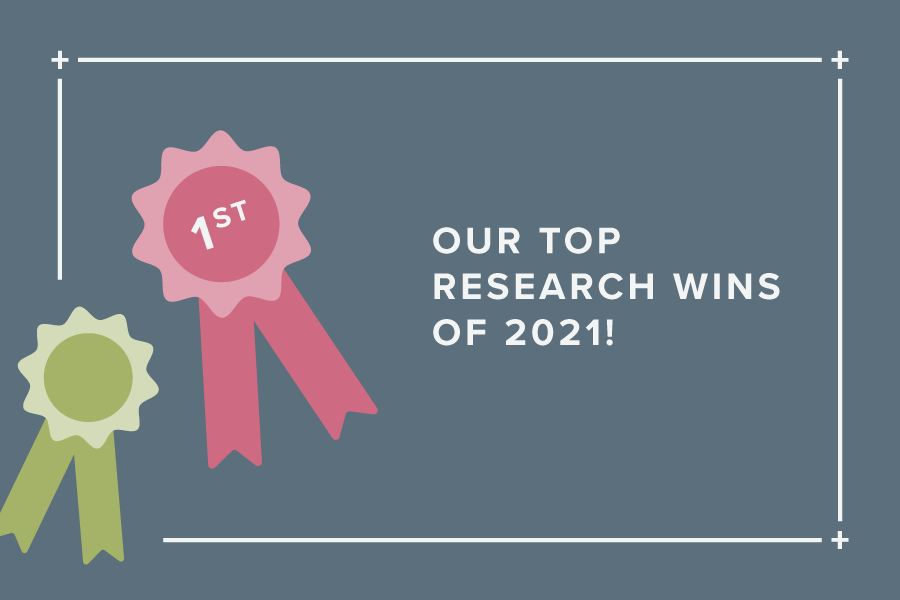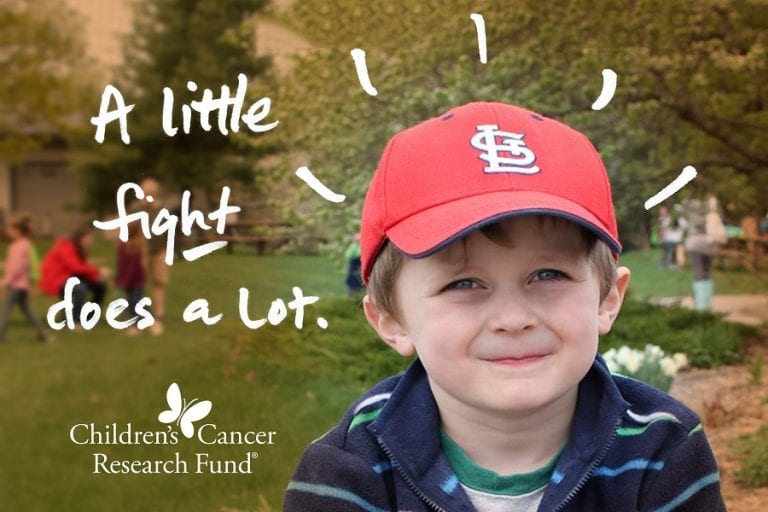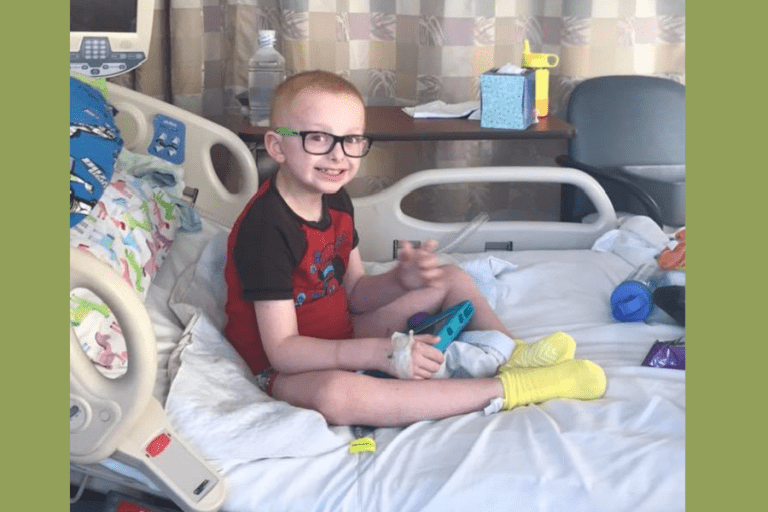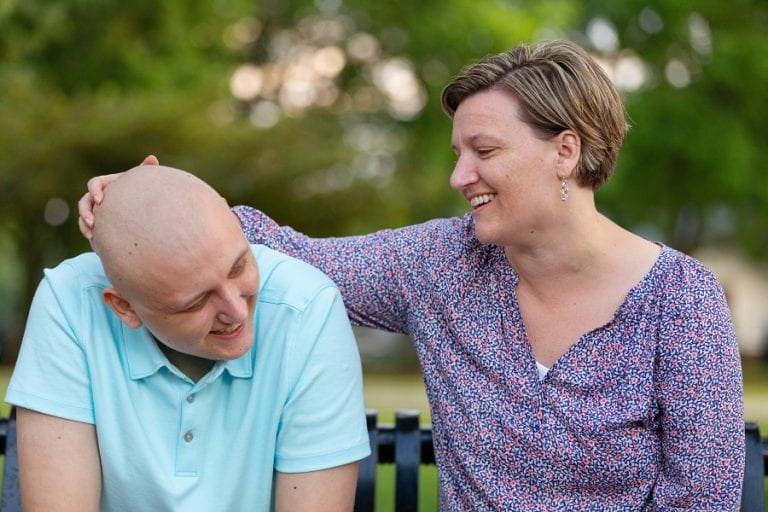Currently, very little federal cancer research funding is dedicated to childhood cancer. It is crucial that we fund safer, more effective treatments and cure for kids with cancer. Our main focus is to support the research of bright scientists whose ideas are making a great impact for children fighting cancer.
We want to ensure that every dollar donated has the greatest impact, so we focus our research funding efforts on three main areas: emerging scientists, hard-to-treat diseases and survivorship. In fact, over half of all the money that goes to childhood cancer research comes not from government funding, but from donors like you.
It’s up to you to make a difference for kids fighting cancer - and in 2021, you delivered. Because of you we funded 40 new research initiatives that will make the childhood cancer experience easier for kids and families.
Here are our top 5 childhood cancer research wins of 2021.
Setting the Stage for First-Ever Targeted Treatment of an Extremely Rare Sarcoma
Ross Okimoto, MD at the University of California San Francisco specializes in finding treatments for the rarest of rare diseases. He studies a deadly subset of sarcoma, cancer that develops in the bone or tissue, called CIC-DUX4 sarcoma.
Data’s Not the Flashiest, But It’s the Key to Childhood Cancer
In line with the focus on pediatric cancer data, Children’s Cancer Research Fund is proud to support University of Chicago’s Pediatric Cancer Data Commons (PCDC), in addition to Childhood Cancer and Leukemia International Consortium (CLIC) and Children’s Oncology Group (COG)— all which work for better data analysis infrastructure in childhood cancer research.
Designing Better Weapons Against Cancer Cells
Part of what makes cancer so challenging to treat is genetic diversity: a one-size-fits-all approach doesn’t work when cancer cells can vary widely among patients and even within the same tumor in an individual child. Jae-Woong Chang, PhD, seeks to identify these cancer cells to make it easier for immune cells to find and kill tumors.
Improving Communication and Trust Between Cancer Families and Care Teams
Typically, clinical trials, treatments, and complicated medical terms come to mind when we think of childhood cancer research. But, Bryan Sisk, MD at Washington University in St. Louis looks at it from a unique and crucial perspective: through the lens of communication between families and clinicians.
Until now, no one has developed tools to measure the many aspects of communication in childhood cancer. Dr. Sisk is developing these measures, which will be the first of their kind.
Crossing International Borders in Retinoblastoma Research
In the U.S. and other high-income countries, retinoblastoma is usually cured, but treatment can leave a child who survives with significant visual impairment and facial deformities. Survivors are often at risk for secondary cancers caused by the treatment. In low-income countries, where most retinoblastoma cases happen and many go undiagnosed, children often die of this disease.
The Pediatric Cancer Data Commons (PCDC) at the University of Chicago, funded in part by Children’s Cancer Research Fund, aims to create a clearer picture of retinoblastoma by gathering and harmonizing cohesive data sets through a world-wide initiative called Global REACH.
Your donation makes research breakthroughs possible
By donating to Children’s Cancer Research Fund, you’re giving the brightest scientists the support they need to put their great ideas into practice. Learn more about CCRF's commitment to funding researchers early in their careers.




